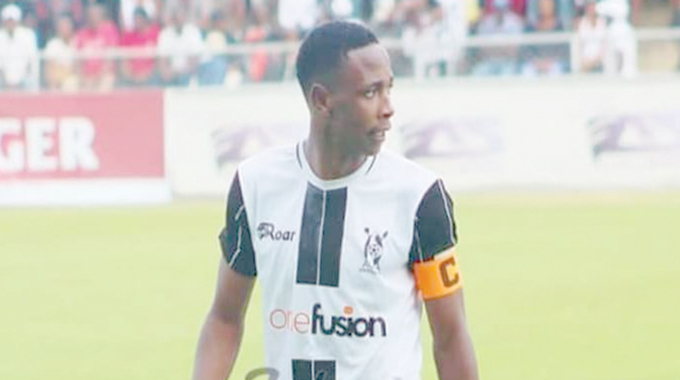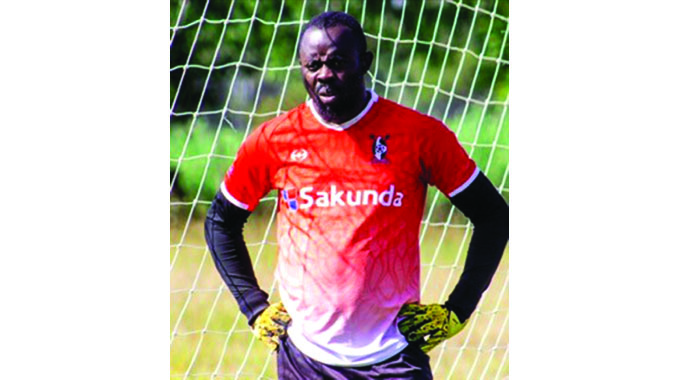For Bosso, in more ways than one, this feels like the rebirth of a giant

Robson Sharuko Senior Sports Editor
IN more ways than one, this feels like the rebirth of a football giant, if not a city, whose identity is stitched into the badges of this huge sporting institution.
It’s called the City of Kings and Queens, a beautiful laid-back town of wide streets and landmark historical buildings, whose mood is largely shaped by what happens at its biggest football club.
It’s a unique and special relationship, probably’s football’s ultimate version of Siamese twins. A football club that was born in a royal homestead, established by the grandsons of the Last King of Matabeleland and, by extension, linked to the original King himself, Mzilikazi, and handed over to this grand old city, and its people, as a reminder of their proud history.
More than a football club, it’s a powerful reminder of history, a reflection of the present and hope for a thriving future in which this city dreams of a return to the good old days when the sounds of its heavyweight industrial hub used to be the heartbeat of this town.
When the music of Lovemore Majaivana, especially those glorifying the greatness of Bosso, used to be the sound of both choice and hope, not only for this club, but also for this beautiful city.
Today, there will be a festival of songs and dance in this City of Kings as its people, a combination of those who still live there and those who left but remain eternally connected to their hometown, and have returned for this grand show, parade their joy across its wide streets in outdoor parties.
‘‘Our club chapters and fan groups from all over the country, South Africa and Botswana have confirmed road shows from their respective bases for tomorrow’s final,’’ Highlanders said on their official Twitter account yesterday.
‘‘We are anticipating a full house, gates open at 11am, be there early to avoid inconveniences.’’ What’s the occasion, you may wonder? Well, the Chibuku Super Cup final has come to town and, crucially, Highlanders – the heart and soul of football in this City of Kings – are battling for silverware at Barbourfields this afternoon.
They host ZPC Kariba in what Bulawayo residents are saying is the biggest football game staged there for some time now.
Bigger than the CAF Champions’ League group match between FC Platinum and Orlando Pirates, in January this year, which attracted a full house at Barbourfields as Highlanders fans celebrated the coming to town of a club they have long considered to be a part of them.
And bigger than all the Battles of Zimbabwe, which Bosso have been winning, with such frequency these days, it no longer provokes that element of pride, when they take on Dynamos, to trigger a flood of fans to come to Barbourfields and fill the grand old stadium.
This, in more ways than one, feels more than just a football showdown with a silverware at stake and, it appears, it’s written in the stars that, at the end of it all, it would be the Highlanders family smiling.
For, somehow, fate has ensured that the Chibuku Super Cup, the first major silverware Bosso won in their history, should today provide this club with an avenue to return to the glory fields, after years of a barren search for the major trophies that really matter.
The Bosso Class of ’73 provided that big breakthrough, powering to an impressive 3-0 win over Mhangura at Rufaro, handing them the belief they could thrive among the big boys. And, crucially, a template of writing success stories which have transformed the club into this giant.
‘‘Winning the Chibuku Cup in 1973,’’ Bosso legend, Lawrence ‘’Lofty’’ Ncube, who later became a very successful team manager of the club, told the Football And The City website when asked what was his best moment with the team.
‘‘Coming from the then Second Division, we qualified for the final of the Chibuku Cup against the much-fancied Mangula FC that had the like of the Chieza brothers, Philemon Phiri and (Alick) Masanjala, to name but a (few).
‘‘The ‘black and white road show’ to Harare was phenomenal, including 19 busses, hundreds of private cars, a special train of supporters. It was like the whole Bulawayo had taken the weekend off to Harare 400 kms away.
‘‘We won the game 3-0, Highlanders gave me the opportunity to play football and travel to almost every country in Africa; West Germany, the Netherlands, Scotland and South Wales. There can never be any moment greater than donning a Highlanders jersey.’’
The names of those heroes of the past, like Billy ‘‘The Kid’’ Sibanda, Tymon ‘‘White Hose’’ Mabaleka and Edward ‘’Sales House’’ Dzowa, were inspirational and provided the template which this generation is now using to try and win silverware.
Ironically, in 1973 when Bosso lifted the Chibuku Cup, a genius – who would transform himself into the finest footballer to represent this club, and his country, Peter Ndlovu – was also born in Bulawayo.
Highlanders’ triumph in that year was just the perfect way to celebrate the 30th year of their hometown, Bulawayo, being granted city status in 1943.
Their fortress Barbourfields, where they take on ZPC Kariba in the Chibuku Super Cup final today, also provides a throwback to the days of a good mayor of their town, H. R. Babour, whose name gave birth to this stadium. A Scottish immigrant, Barbour was a loved mayor of Bulawayo who was interested in improving the welfare of the black people of his town.
There has always been a foreign influence at Highlanders, from the very beginning when the King’s grandsons borrowed the concept of establishing this giant football club in Cape Town, the arrival of the British FA XI in Bulawayo during their tour of this country in 1929.
This year marks the 50th anniversary of the year Scottish club Clyde also toured the City of Kings while another Scotsman, Bobby Clark, once coached Bosso whose resurgence this year has been credited to the arrival, and influence, of Dutchman Pieter De Jongh.
Highlanders owe their city, which provided this country with its first league champion when Bulawayo Rovers captured the inaugural crown in 1962, a huge favour.
All they need to do is ensure they provide a fitting closure to the fifth decade, of organised league football in this country, with victory in the Chibuku Super Cup today.
This will be a journey into the past, a dance with the present and, possibly, a peak into the future. That’s why, in more ways than one, this is more than just a football match for both this club and its city.








Comments